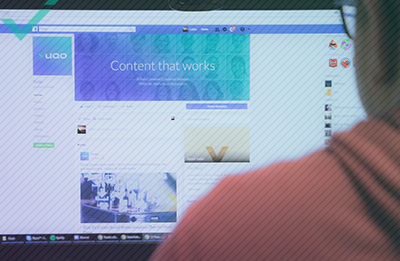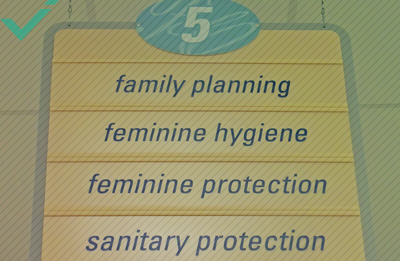Netflix’s international expansion has been exponential: by January 2016, its services operated in 190 countries, and by 2017, it supported 24 languages. Knowing that, it is safe to assume that this media service provider not only offers high-quality content and understands how to promote itself effectively, but also knows a thing or two about localisation.
WHAT IS LOCALISATION AND WHY IS IT IMPORTANT?
Language localisation is not to be confused with translation; indeed, they share similarities, but the two remain distinct. The main goal of translation is, well, to translate content from one language to another. Localisation, on the other hand, goes much deeper, focusing not only on rendering content into another language, but adapting it to be culturally relevant. A comprehensive study of the target culture is required to make localisation work.
Furthermore, localisation is extremely important for international businesses. If you want to expand into new markets, you’ll need to come up with a personalised approach—and localisation is a key part of this. When used properly, localisation ensures that companies use the correct terms, design, code, etc. to appeal to their target audience—no matter where in the world they are.
Take a look at this commercial created by Apple. It is exceptional and emotional; however, what’s even more amazing is that its Chinese version looks similar to the original, yet includes the cultural and historical distinctions that really matter. This what good localisation looks like.
So, what exactly did Netflix do to make its localisation approach so successful? And what can we learn from it?

NETFLIX LOCALISATION: HOW IT’S DONE
Netflix releases new shows, and new seasons of existing shows, every month—its schedule is quite packed. 18 new shows are set to be released in March 2019 alone. The volume of video content is huge, so finding enough qualified professional translators would seem like quite the struggle. That’s why Netflix decided to search for translators around the globe, using the power of the internet.
In March 2017, Netflix launched an online subtitling and translation platform called Hermes, encouraging translators from different countries to apply. In March 2018, Hermes was closed because Netflix had “reached our capacity for each one of the language tests”.
It seems that it took only a year for Netflix to find enough professional translators capable of localising all of its shows. Very impressive!
Furthermore, for a company like Netflix, text translation is not the only factor that requires focus: Netflix also invests in dubbing. Denny Sheehan, Director of Content Localisation and Quality Control at Netflix, says “We think of subtitles and dubs as really enabling access to the story”.
Dubbing is sometimes considered a “dead art”, but Netflix obviously doesn’t think so. On the contrary, its representatives claim that it could actually expand the viewer experience. Could it work? It already did, with season two of “Stranger Things”.
It seems Netflix’s strategies are as simple as can be; yet somehow, this company is a global success, reaching 139 million paying subscribers in January 2019. Therefore, learning from Netflix definitely seems like a good idea. So, what exactly can we learn from it?
TIP 1: PUT QUALITY FIRST
If you watched the above video of “Stranger Things” dubbing, you might have noticed that the children’s voices sound alike in different languages. Furthermore, Netflix uses an interactive wiki called KAP (Key Names And Phrases) to ensure that the translations are consistent across both the content and titles, as well as across each season of each show. They pay meticulous attention to the detail—and it pays off.
TIP 2: START SMALL
Netflix didn’t launch globally from the start, and that was a wise decision. It started small, first expanding to Canada, then operating in 50 countries (in 2015). This allowed Netflix to test and polish its localisation strategies, making sure they would adapt to an exponential increase in scale.
Therefore, if you don’t have enough time or money to invest in high-quality localisation, it’s always better to take baby steps, monitor the results, and see how things turn out.
TIP 3: ALWAYS KEEP YOUR TARGET AUDIENCE IN MIND
When Netflix creates a show that takes place in a foreign country (be it Russia, India, etc.), they don’t merely use the country as a background for the show’s events. Their goal is to keep the locals in mind throughout the entire process, from script to set to post-production; Netflix aims to make sure that locals will understand, appreciate, and hopefully, love each show.
Therefore, before launching any product or service on the international market, think about how you can make it more appealing to your current target audience, as well as any potential future targets.
TIP 4: KEEP USER EXPERIENCE AND TECHNOLOGY IN MIND
The devil is in the details, after all. If you run any kind of online business, you need to make sure that it will work and display properly in a foreign country. For instance, in some countries, people surf the web from smartphones much more than from desktops. Therefore, your website needs to be optimised for mobile devices (both Apple and Android).
Things like the speed of mobile internet and the types of devices your audience uses could affect the performance of your site or service, so be sure to always pay attention to UX.

LOCALISATION IS A CRUCIAL PART OF ANY CAMPAIGN
Effective localisation can get your business very far, but it doesn’t happen overnight. If you run a small business, it might not be possible to replicate a localisation strategy on the scale of Netflix. In this case, you could consider turning to professionals like Yuqo for localisation help. We offer high-quality localisation and marketing services, helping you to efficiently communicate with your international clients.


